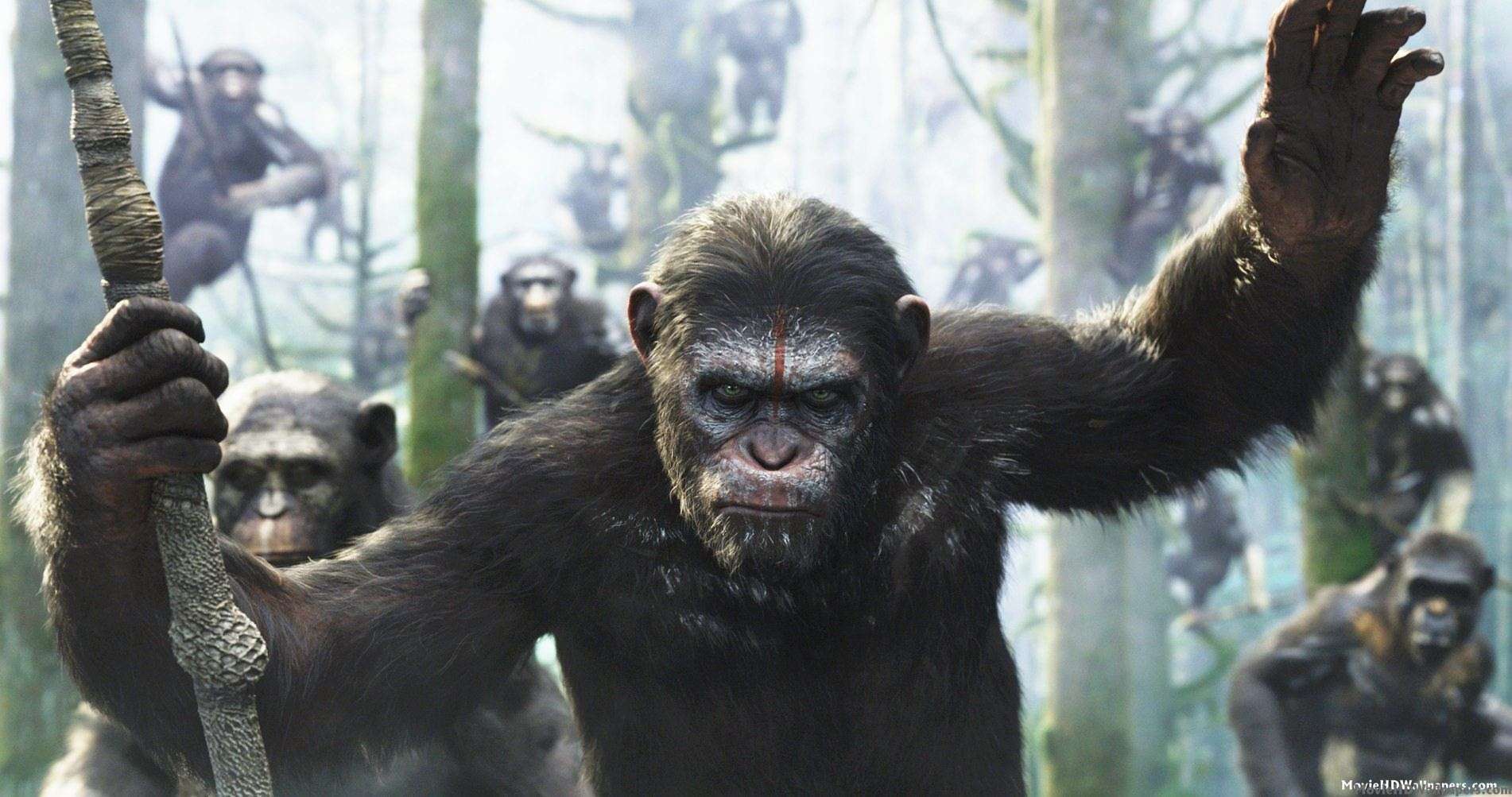Dawn of the Planet of the Apes: Age of Ape-Pocalypse

Too many big-budget franchise entries these days rely on Hollywood's standard four-word formula for sequels and reboots: the same, but more! (22 Jump Street did a surprisingly great job of parodying this tendency by going out of its way to play up all the ways it was an unnecessary, overstuffed sequel.)
The biggest strength of the new Planet of the Apes film, Dawn of the Planet of the Apes, is that it's not content to tread the same path as its predecessor. It ditches the entire human cast from the great Rise of the Planet of the Apes (sorry, James Franco) and tells a completely ape-centric story, where humans are the strangers and intruders into the simian world. Instead of a rehash, it's a totally new story that takes place in a world created by the events of the first film. And it works really, really well. From my review:
It's rare for big-budget, effects-driven film franchises to risk alienating fans by trying something new.
And yet those rare genre sequels that do attempt to expand their worlds and stories often turn out to be some of the most memorable and successful: Movies like "Aliens," "Terminator 2," "Star Trek: The Wrath of Khan" and "The Dark Knight" took real creative risks — and surpassed their predecessors in the process.
Now we can add another film to that list: "Dawn of the Planet of the Apes" is both a great sequel and a great movie — a film that expands brilliantly on its already strong source material, and makes a case for itself as the best movie of the summer.
"Dawn" picks up shortly after where 2011's "Rise of the Planet of the Apes" left off: That film, a sort of prequel to 1968's "Planet of the Apes" set in the present, ended with a group of intelligent apes, led by a chimpanzee named Caeser (Andy Serkis), forming their own society just outside of San Francisco.
In "Dawn," they're still at large, but now the world's humans are largely gone. Most of the population was wiped out by the same disease that lifted Caesar and his tribe to human-level intelligence.
The movie welcomes viewers to the monkey house from the very first shot, which starts on Caesar's eyes, and pulls slowly back to reveal an older, wiser, more grizzled version of the young chimp who stole so much of the show in "Rise." It's an announcement that this is a movie made from his perspective, about the coming of his world — and the sad, slow end of ours: It's life after the ape-pocalypse.
There are still a few humans left, of course, and it's the tense relations between humans and simians that make up the bulk of the movie, which builds its conflict out of an all-too-believably plotted cycle of violence and reprisal.
The reversed perspective is the movie's best trick, and director Matt Reeves pulls it off almost perfectly, bringing viewers fully into the primitive tribal society the apes have created.
Read the complete review in The Washington Times. Read Kurt Loder's review for Reason here.


Show Comments (53)